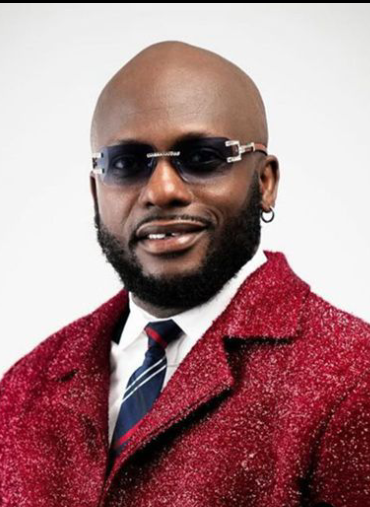
“Go After the Real Thieves, Not Hotel Guests!” — Comedian I Go Save Blasts EFCC Over Night Raids

Popular Nigerian comedian, I Go Save, has openly criticized the Economic and Financial Crimes Commission (EFCC) over their controversial practice of raiding hotels at night in the name of clamping down on internet fraudsters. The comedian, known for his blunt humor and fearless social commentary, took to his social media page to express his frustration with the anti-graft agency’s methods, accusing them of targeting the wrong people while ignoring the real looters of the nation’s wealth.
In a viral post shared across multiple platforms, I Go Save questioned the logic behind the EFCC’s night operations, suggesting that the agency’s focus on hotel raids paints a picture of misplaced priorities. “Gofficialefcc, why una dey always go raid hotels for night? Abi una dey find ashawo! The real big thieves looting the country are home; go after them and let us applaud you,” he wrote in his typical pidgin style. The post has since stirred massive reactions online, with many Nigerians echoing his sentiment that the agency’s activities often appear selective and misplaced.
Over the years, the EFCC has come under heavy fire for the way it carries out raids on hotels and private residences, particularly at odd hours. Many of these operations, which the agency claims are targeted at cybercriminals, have led to incidents of harassment, property damage, and unlawful arrests. Several Nigerians have accused the EFCC of turning its operations into a witch hunt against young people who simply enjoy modest luxuries. I Go Save’s comments have reignited this long-standing debate, with his words resonating deeply among those who believe the agency’s tactics have gone too far.
The comedian’s post, laced with humor yet heavy with truth, reflects a growing frustration among citizens who feel the EFCC often pursues soft targets while overlooking those responsible for large-scale corruption. “If you say you are fighting financial crimes, start from those who have been milking the country dry since independence,” one commenter wrote under the comedian’s post. Another person added, “They can’t go after politicians because those ones are untouchable. It’s the young guys using iPhones in hotels they will always arrest.”
I Go Save’s statement also draws attention to the perception that the EFCC’s approach is performative — more about optics than real justice. In recent months, several viral videos have shown EFCC operatives storming hotels and nightclubs, breaking down doors, and arresting dozens of young men. Some of these individuals later claim to have been innocent guests, their only crime being at the wrong place at the wrong time. Many Nigerians argue that such raids, often conducted without proper warrants, are not only unlawful but also erode public trust in the institution.
Beyond the public outrage, legal experts have also weighed in, insisting that EFCC’s night operations contravene fundamental human rights. The Nigerian Constitution guarantees citizens the right to privacy, and several human rights organizations have repeatedly condemned the agency’s methods as abusive and unconstitutional. Yet, the practice continues. I Go Save’s criticism may have been delivered in jest, but it carries a serious undertone — one that questions why accountability seems to be enforced only at the lower levels of society.
The comedian, whose real name is Otaghware Onodjeyeke, is known for using his platform to address pressing societal issues. From corruption and bad governance to unemployment and police brutality, I Go Save has consistently used humor to shed light on uncomfortable truths. His latest jab at the EFCC is no different, tapping into the collective anger of a population tired of watching young people get humiliated while the powerful remain untouchable.
Social media has since erupted with mixed reactions. While many Nigerians praised I Go Save for speaking up, others defended the EFCC, arguing that the fight against cybercrime requires aggressive tactics. “Na people wey dey do yahoo give EFCC bad name. If dem no raid hotels, how dem go catch them?” one user wrote on X (formerly Twitter). But another quickly countered, “Even if dem dey find yahoo boys, there’s a legal way to do it. You can’t just burst into hotels at midnight and arrest everybody.”
The EFCC, for its part, has maintained that its operations are guided by intelligence reports and are aimed at curbing the rising cases of cybercrime across the country. However, the agency’s public relations approach has done little to calm public perception. Many Nigerians feel that the agency’s selective enforcement — going after internet fraudsters while leaving high-profile corrupt officials untouched — sends the wrong message about justice and fairness.
Interestingly, this is not the first time celebrities have called out the EFCC for its controversial methods. Musicians, actors, and comedians alike have voiced their displeasure at the constant profiling of young Nigerians, especially those who appear successful. Earlier this year, musician Bella Shmurda also questioned why young people in Lagos and Abuja were being harassed in the name of anti-fraud operations. The message across all these outbursts is clear: Nigerians are growing weary of being treated as suspects in their own country.
I Go Save’s choice of words, especially his sarcastic “Abi una dey find ashawo,” added a humorous twist to a serious issue, yet it struck a nerve with the public. His post continues to circulate widely, with many reposting and tagging the EFCC’s official handle, demanding accountability. The comedian’s voice has once again amplified the need for reform in Nigeria’s law enforcement institutions, calling for an end to intimidation and abuse of power.
As the conversation continues online, it remains to be seen whether the EFCC will respond to the criticism or adjust its operational style. For now, the agency appears unfazed by the backlash, continuing its raids and arrests in several states. But the message from I Go Save and thousands of Nigerians is unmistakable — justice must not only be done but must be seen to be done fairly and transparently.
In a country where corruption has eaten deep into the fabric of society, the public’s demand is simple: go after the real thieves. The big names looting public funds, embezzling billions, and crippling the economy are not hiding in hotels. They are in government offices, boardrooms, and luxurious mansions across the country. Nigerians like I Go Save are simply asking for a fair fight — one that holds everyone accountable, regardless of status or connection.
For now, I Go Save’s post continues to trend as more Nigerians rally behind his words, turning his comedic outburst into a serious national conversation. Whether the EFCC listens or not, one thing is certain — Nigerians are watching, and they are no longer afraid to call out institutions that seem to have forgotten the true meaning of justice.


